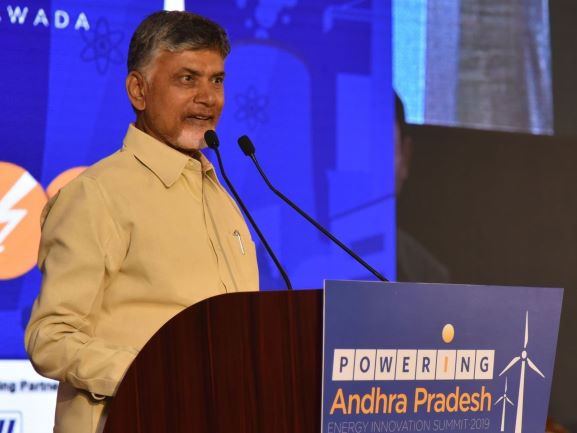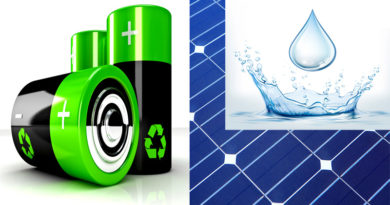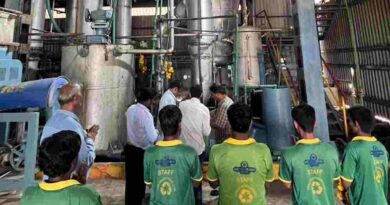Andhra launches ‘Integrated Clean Energy Policy’; targets ₹10 Lakh Cr investment
The novel Integrated Clean Energy (ICE) Policy introduced by Chief Minister N. Chandrababu Naidu offers a range of incentives to encourage investments and generate employment in RE sector.

The state government of Andhra Pradesh has unveiled an ambitious plan to attract ₹10 lakh crore investment in the clean energy sector with an objective to achieve the net-zero carbon emissions by 2047. The new AP Integrated Clean Energy (ICE) Policy, introduced by Chief Minister N. Chandrababu Naidu, has a renewed focus on round-the-clock renewable energy projects including ethanol, compressed-biogas and green hydrogen.
The ICE policy offers a range of incentives, including streamlined land acquisition and power subsidies, to encourage investments in RE sector. It is projected to create employment for 750,000 people, both directly and indirectly.
Andhra Pradesh, with its long coastline and six operational ports (four more under development), is positioning itself as a hub for renewable energy, leveraging its abundant solar, wind, and hybrid resources, along with pumped storage capabilities.
Key targets set by the state include developing 78.5 gigawatts (GW) of solar capacity, 35 GW of wind energy, 22 GW of pumped storage, and 1.5 million tonnes of green hydrogen production annually. The policy also aims to establish 25 GWh of battery storage and 5,000 EV charging stations. Plans are in place for cleantech manufacturing with a capacity of 25-30 GW, creating more local jobs.
To support these efforts, the government will establish the University for Green Energy and Circular Economy (UGC) and a Clean Energy Knowledge & Skill Development Center (CEKSDC) to enhance skill development and partnerships.
Important incentives in the policy include concessional land leases, capital subsidies for renewable energy projects, and waivers of electricity duties and open access charges. The New and Renewable Energy Development Corporation of Andhra Pradesh (NREDCAP) will oversee project facilitation.
The ICE policy is created for a period of five years and is expected to prove to be a significant step in Andhra Pradesh’s journey towards becoming a leader in clean energy.
Recently, Municipal Administration and Urban Development Minister P. Narayana held that all the 13 districts of Andhra will have waste to energy plants to give fillip to optimal waste management and green energy production.




